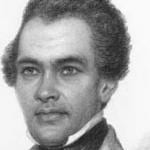
Read enough books, listen to enough smart people talk about those books and certain obvious truths are hard to remember. Teach a freshman class in college and sometimes the younglings remind you of what you have forgotten. The obvious, foolishly forgotten, brings back into the well-read mind basic truth and unites years of thought about the whole book all over again.
Here are ten obvious facts I sometimes forget:
Beowulf is a Christian book.
Did the person who gave us the story use non-Christian sources?
Probably.
Do we have those sources actually?
No.
Read the text and it is Christian. Start there.
The novel Jane Eyre is about Jane Eyre.
There are so many themes and scintillating characters in this greatest English novel that it is easy to forget it is about a plain, brilliant English woman: Jane Eyre.
Never forget.
The book of Revelation is a wild series of images: a revelation.
Weirdlings always try to tell you just what this apocalypse means, but younglings see immediately it is wild. Keep that idea in mind and realize that this is a series of startling images because the Time of Doom will be just so.
Some scholars spend more time on sources of these books than on the text we have.
The Book of Mormon is one of the most influential books to come out of America.
If you have not read it and understood why people are moved by it, what is wrong with you? Some people have an easier time calling The Road a great book than one of the most important books produced by an American.
You don’t have to agree or like a book to acknowledge it has world-class power.
Sauron is the title character in Lord of the Rings.
I wish it were named Samwise. You may wish it was called The War of the Ring.
No.
Without saying a word, Sauron is the title character of Lord of the Rings. Think about it.
Just because a writer was x, doesn’t mean x is the key to every book.
Think about your own life: you are who you are, but who you are cannot be reduced to one aspect of who you are.
Truth is timeless, but no book is.
A philosopher like Plato finds truth that changes everything until Jesus returns. He also was writing to Athenians long ago. Remember both.
The Bible is a collection of books.
It is good to take the collection and see themes that unite the books, yet there are many books. Read any book (or collection like Psalms) first as a whole.
Plato wrote dialogues that should be understood individually.
If Plato had wished to write out his doctrines, he could have done so. He did not. Instead, he gave us a variety of genres. The most frequent type of book he gives his reader is a dialog and he is never a character. What is Plato saying in Republic? That is hard work enough for a long lifetime or two before one compares Republic to some other dialogue.
Authorial intent matters, but great books can matter by provoking new ideas.
Read Aristotle and you learn from Aristotle.
Good news! Being dead, he yet speaks.
Plotinus read Plato and got him wrong, but managed to interpret him badly in a way that created new, excellent ideas.
We may not do as well as Plotinus, but having gained what the author meant, we can also see something new, provoked by genius into a modest new application to our lives.
These are obvious, but I forget them if I am not careful. God help me.
Great books are often entrancing, causing me to lose myself in the beauty of a single phrase (“One, two, three, where is the fourth . . . “), but there are obvious truths in the whole that I must never lose.
Almost no undergraduate makes the mistake of missing the book for the beauty of the phrases and so the scholar may bless the student.
Rachel Motte edited this essay.













